- Home
- Gordon Korman
Payback Page 2
Payback Read online
Page 2
“What do you think you’re doing?” The shocked grocery shopper steps protectively in front of Tori.
The sedan’s driver leaps out and shoves him to the pavement with a warning of, “Mind your own business, old man!”
Tori reaches into the trunk for another weapon. This time, she’s not as lucky as she was with the pickle jar. She comes up with a long baguette and swings it like a baseball bat at the driver. With a cruel laugh, he allows her to club him with it a couple of times before yanking it from her hands.
Out of options, Tori flees. The driver springs after her. She’s the fastest and most athletic of us—burglar DNA—and I toy with the possibility that she can outrun him. He’s got long legs, though, every stride of his matching two of hers. He’s gaining fast.
I’ve got to help her, but what can I do? I’m fifty feet behind, and slower than both of them.
And then it comes to me—the sedan is just standing there with the motor idling and both doors open!
I jump in and throw the car in gear. I’ve driven before— Malik and I both taught ourselves so we could escape from Serenity. I’m just about to take off after them when a hand reaches across the front seat and grabs at my elbow. I forgot about the other guy—the one Tori hit with the pickle jar. His sunglasses are broken, and a big angry bruise is blooming in the center of his forehead.
I stomp on the accelerator and yank the wheel hard left. The car bursts forward, swerving violently. I feel the grip release from my arm, and when I glance over at my attacker, he’s not there anymore. He’s in the rearview mirror, twenty feet behind, still rolling on the blacktop.
Ahead, the first guy is almost up to Tori, so close he could grab her at any second. I roar alongside them, yelling through the open passenger door. “Get in!”
I see his mouth forming a shocked O as he realizes it’s me and not his partner behind the wheel.
He grabs for the back of her T-shirt, but Tori shakes him off and flings herself into the car, landing with an “oof!” on the passenger seat.
He reaches for the door handle, just getting a finger on it. I stomp on the gas. The sedan leaps forward, leaving him in a heap on the pavement. I squeal out of the parking lot and take off down the street.
Tori manages to get herself upright and into her seat belt. “You’re never going to believe this,” she beams at me. “That guy tipped me five bucks!”
I almost steer into the ditch. “That’s it? That’s all you got out of what just happened? You were nearly kidnapped!”
“Well, yeah. There’s that.” She nods gravely. “Hey, you don’t have to drive so fast. It’s not like those two guys can catch us on foot.”
I don’t slow down. “They’re not who I’m worried about. It’s your big tipper—the one who isn’t getting pickles for dinner tonight. For sure he’s going to call the cops. I want to put some distance between us and that parking lot.”
“Were those guys Purples?” she asks, her tone turning haunted. “Did you recognize them?”
“Not really,” I admit, “but they weren’t exactly standing still. Anyway, who else would be after us?”
“Four days,” she moans. “That’s all it took for them to find us? How are we ever going to lose them?”
“Easy,” I say. “We drive out of town and don’t stop driving until we’re a thousand miles from here.”
“That’s what they’ll expect us to do,” she muses thoughtfully. “And they know what car we’re in. They might even be able to trace it by GPS.”
GPS. That’s my department. I have a knack for electronics. Phones and tablets and most computers have GPS antennas built into them, but I never thought about cars. My mind races. The transmitter would probably have to be on the roof, so the bulk of the vehicle doesn’t block the signal.
We drive for another fifteen minutes and then I pull into a private-looking alley behind a row of stores, half of them boarded up. It takes only a few seconds paging through the owner’s manual to find the antenna. It’s the small fin-shaped thingamajig on top.
I climb up on the trunk and try to jam the flat end of the tire iron into the narrow space between the antenna’s rubber weather stripping and the metal of the roof.
“Careful,” Tori warns. “You’re denting it.”
“I’m not too worried about the resale value,” I grunt, prying with all my might. “Especially considering whoever owns this car just tried to kidnap you. I can see the wires. Have you got enough room to reach in and cut them?”
She brandishes the scissors from the glove compartment first aid kit. I hear snapping sounds. “I think that’s all of them,” she reports. “But how can we know for sure?”
We get back in and turn on the radio. Dead air.
We hit the road again, feeling a little bit safer. We still have to worry about the police in case the car is reported stolen.
We drive clear through the center of Amarillo, and it seems as if we’re about to exit the town on the other side, since it looks like the suburbs again.
All at once, Tori barks, “Stop!” right in my ear.
I slam on the brakes, shaken. “What?”
“Look!” She points to a high fence with a sign: NO TRESPASSING.
“What about it?” I demand.
She indicates a second sign, newer than the first.
WAREHOUSE FOR LEASE 35,000 SQUARE FEET AVAILABLE MAY 8TH
“Don’t you see?” she says urgently. “It’s what—the fifteenth? The sixteenth? It’s hard to stay on top of the calendar when you’re running for your life.”
“Yeah, but what does that have to do with us?”
“Think,” she insists. “If they just closed the place a week ago, and they’re hoping to rent it again soon, it’s probably not in bad shape. I’ll bet they left the power on, and running water. And check out that door—” She nods toward the loading bay. The metal gate is up at least eight inches.
“It’s not locked,” I conclude.
“Right. We can get the car in there and lie low for a while. It’ll give us a chance to breathe until we figure out what our next move is going to be.”
I’ve got to hand it to Tori. When it comes to planning, Yvonne-Marie Delacroix could take lessons from her. The only skill I could have inherited through DNA is killing people. Or maybe composing crossword puzzles.
It’s when we get out of the car that the flaw in her idea becomes clear. The front gate of the warehouse is tied shut by a chain, held in place by a padlock.
“What about that?” I ask. “And don’t tell me you can pull out a hairpin and pick the lock.”
“I wish.” Tori studies the situation with that look on her face. “The chain is pretty rusty. Maybe we can break it with the tire iron.”
“No way,” I tell her. “That’s solid metal.”
“Was there a toolbox in the trunk?”
I shake my head. “Just the tire iron and the jack . . .”
My voice trails off. When you’re changing a tire, you can use a jack to lift a whole car. If it’s strong enough for that, maybe it’s strong enough to break a metal chain.
We pop the trunk and dig out the jack, which is in the compartment with the spare tire. I examine it critically. It’s a diamond shape, flat at first. But as you pump the handle, it grows taller and narrower.
Tori wedges the jack inside the tight chain that’s holding the gate shut. Then I go to work with the handle. But instead of raising the body of a car, the expanding device is forcing the chain apart. As the loop is stretched to its limit, the ratcheting action becomes tighter, until I can barely budge it. I think of Malik, whose strong arm would come in handy just about now.
A panel truck rattles by on the uneven pavement, and Tori and I freeze like a couple of scared rabbits. Believe me, nothing has ever looked so much like breaking and entering as what we’re doing right now. But the driver doesn’t even glance in our direction, and soon he’s gone.
The experience gives my arm a hidden reserve of pow
er I never knew I had.
I was sweating before; now I’m as wet as if I’d been dipped in a swimming pool. The cranking sound of the jack has slowed to a series of strained clicks.
Crack!
The chain snaps, whipping around in a lethal semicircle that would have taken off the tops of our heads if they had been in the way. The padlock slips off and hits the driveway with a clatter, still locked.
We unwrap the broken chain and the gate swings wide. I jump back in the car and drive it onto warehouse property. Tori pulls the gate shut behind me, and the two of us rush to wrap what’s left of the chain into as close to its former position as possible. The padlock is intact, but we can remove the impediment any time we want to. The important thing is no one can tell that the gate has been opened unless they examine it closely.
Next order of business: hiding the car. We turn our attention to the partially open loading bay door. I try to lift it higher, and can’t budge it.
Tori is undeterred. She rolls through the opening, and a few seconds later the door is rising on an electric motor. We’re in.
I ease the car inside, and we lower the door behind it. Safe—or at least as safe as we can possibly be, considering our situation.
The warehouse is dim, but the lights work, and so does the air-conditioning. It’s the kind of comfort we haven’t seen for a long time. The bus tickets from Lubbock ate up most of our cash, and we’ve been rationing what little we have left so we can feed ourselves. Our career as grocery carriers isn’t exactly bringing in the big bucks. We’ve been sleeping in a shelter made of old grocery cartons outside the supermarket, in a place where the overnight low temperature is a steamy ninety degrees.
The warehouse is a vast soaring space with towering steel shelving units that stretch as far as the eye can see. There’s a small office area with better lighting, upholstered furniture, and even a TV in the break room. The couches look pretty enticing, sleep-wise. And there are bathrooms—real bathrooms. I’m psyched about that, but not half as much as Tori. The executive office even has a shower.
“This’ll do,” she decides with a satisfied smirk.
It’s good to see her happy, although I can’t help but think about how far we’ve fallen. We had the best of everything in Serenity—large, comfortable homes, pools, every convenience and luxury you can think of. Of course, we were experiment subjects then, and we aren’t anymore. Fugitives, maybe, hunted like animals. But there’s a lot to be said for freedom.
“I wonder what this warehouse was used for,” I muse.
Tori steps into the main area and digs through a carton on the nearest shelf. She comes up with a box of Girl Scout Cookies.
“No way!” I exclaim.
She tears open the container and we’re halfway through the shortbreads before even coming up for air. Nothing ever tasted better.
“Things are finally starting to go our way,” she mumbles, her mouth full.
“Definitely,” I agree, scanning the array of cartons on the shelf. Thin Mints, Caramel deLites, Peanut Butter Patties, Cranberry Citrus Crisps, Rah-Rah Raisins, Toffeetastic—it goes on and on. I take in the lofty heights of the storage units, boxes upon boxes, all the way to the forty-foot ceiling. “We could be here for centuries and never run out.”
“Amber wouldn’t be able to handle this,” Tori reflects. “You know how crazy she gets about eating right.”
The thought of our lost friends takes some of the celebration out of our feast. If Malik and Amber were recaptured by Purples, it means any chance they have is in our hands. And where are we? Hunkered down in an old warehouse inhaling Girl Scout Cookies.
That’s the real problem. Up until now, we were always working toward a goal. First it was escaping Serenity, but that was just the beginning. Next it was finding Tamara Dunleavy, billionaire cofounder of Project Osiris—only to have her deny she knows anything about it. Last, it was connecting with C. J. Rackoff, one of the Osiris DNA donors. We made a deal with him, even broke him out of prison, and were betrayed by him and Hector, his clone.
If Tamara Dunleavy is a dead end, and so are the criminal masterminds we’re cloned from, what’s our next move?
Sure, we have a lifetime’s supply of cookies, but that’s not what we really need.
We need a future.
3
MALIK BRUDER
When I get my first glimpse of the Chicago skyline, I know I’m not in Happy Valley anymore.
Okay, we’ve seen cities before. This train alone passed through Oklahoma City, Kansas City, and St. Louis.
Dinky compared to this.
Don’t get me wrong. Any city—and 99.9 percent of all towns—is better than Serenity, New Mexico, the tiniest, stupidest, fakest pimple on the hairy butt of humanity. The fact that it’s not there anymore—or at least that it’s abandoned—makes the world a much better place.
Too bad Laska’s missing the first view of all these skyscrapers.
We slow down and the announcement comes that the next stop will be Chicago’s Union Station.
I get out of my seat, walk to the bathroom at the end of the car, and give the special knock—three, two, and one.
Amber slides the door open a couple of inches.
“Chicago,” I tell her. “And wait till you see it.”
She comes out, giving me her nastiest face. “Next time, I get the real ticket and you ride in the toilet.”
We only had enough money for one train fare, so one of us had to be the stowaway. I look older, at least old enough to be traveling on my own. Amber had to tough it out.
I wonder if it’s worth the nagging I’m in for. “You talk like you spent the last two days in there. Most of the trip you were right next to me. It was just when the conductor was nosing around that you had to get lost.”
“Just take me off this train,” she mutters. “People are looking at me like I belong in the hospital. Nobody spends so much time in the bathroom.”
“Maybe you think we should have stayed in Texas with the Purples,” I challenge.
She relents a little. She knows as well as I do that Gus Alabaster is our only lead, our one connection to the beginning of Project Osiris, before we were born. All the other criminals we were cloned from are either in prison or dead. Except for C. J. Rackoff, of course. The only reason he’s not behind bars is because we broke him out. And he stabbed us in the back for it. Stupid to trust Rackoff; stupid to trust anybody connected to Hector. Or maybe I’ve got that backward, since Hector is Rackoff’s clone.
Anyway, a few days ago, Gus Alabaster—my guy— was released from jail. His sentence isn’t over, or anything like that. He still has eleven years to go on the tax evasion charge they finally hung on him. But he has cancer, and the doctors say he hasn’t got much longer to live. So they let him out so he can spend his last days at home.
I smuggle Amber safely off the train in spite of the conductor’s very suspicious frown. Pretty soon we’re walking around downtown Chicago, staring at the crowds and the buildings and the elevated trains, and the river running right through the center of town. I can tell it’s a lot bigger and more happening than Denver, the other major city we’ve been in. You can just feel the energy in the sights and sounds and sheer thrum of the place. I love it.
But there’s a problem. How do you find one dying gangster in a city of millions like this? It’s not Happy Valley, where you could knock on every door in town in twenty minutes, half an hour, tops.
Amber has a suggestion. “Why don’t we go to the library?”
“We haven’t got time to read,” I tell her. “This guy could kick it before we ever get a chance to talk with him.”
“A library is all about information,” she insists. “Maybe his address is on file somewhere.”
I feel a stirring of hope. Back in Serenity, Amber’s mom was our teacher. Her fake mom, I mean. The point is, Amber was brought up in a house that was big on learning.
The Serenity Public Library was a closet full of
books in the town hall. The library we get directed to looks more like an Asian palace done in red brick. There are about a gazillion books in there, but we fall on the computers.
Laska is getting a little teary. “Computers make me think of Eli.”
I know she’s also worrying about Tori, her best friend. I consider my own best friend—Hector. If he was here right now, I’d push his teeth down his traitorous throat. Which means I probably have more in common with Gus Alabaster than I thought.
Anyway, the reason computers bring Eli to mind is he’s a genius with them, which is especially amazing for a guy who grew up in a place where the internet was all bogus. But we don’t need a genius—we just need to look up everything we can find about Alabaster. Between Laska and me, surely we can manage that.
We’ve researched Alabaster online before, but the Chicago Public Library has a lot more stuff—a vast database of every newspaper and magazine article ever written about the guy from the time of his first arrest in 1963, at the age of fifteen.
We pore over the material, searching for the one thing we need to know. He’s an international playboy with homes all over the world, but the government took a lot of that back when they found him guilty. He only has one residence left—and it’s right here in Chicago.
“But what’s the address?” Amber seethes in frustration.
A sharp “Shhh!” comes from around the library.
She drops her voice but her face is pinched. “Gus Alabaster is horrible! If even half of all this is true, he deserves to die in jail and then be brought back to life so he can die in jail again!”
“Really? I think he sounds kind of cool.”
She glares at me. “If you’d skip over the parts about the movie stars he dated and the yachts he bought, and read about the crimes he committed, you’d see the kind of monster he is.”
How am I supposed to take that? I mean, I’m not Gus Alabaster, but I’m an exact copy. “At least he’s not a terrorist,” I tell her, “like who you got your DNA from.”

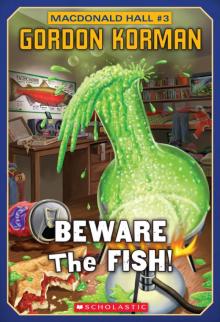 Beware the Fisj
Beware the Fisj Slacker
Slacker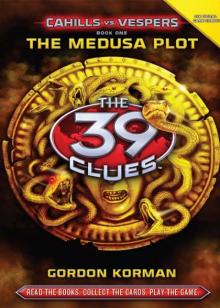 The Medusa Plot
The Medusa Plot This Can't Be Happening at MacDonald Hall!
This Can't Be Happening at MacDonald Hall!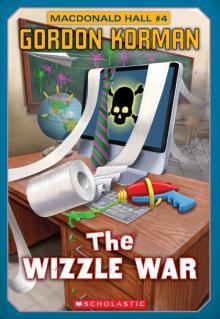 The War With Mr. Wizzle
The War With Mr. Wizzle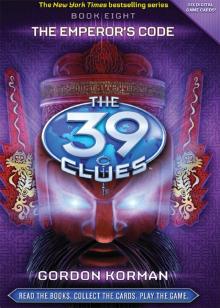 The Emperor's Code
The Emperor's Code Zoobreak
Zoobreak The Danger
The Danger Unsinkable
Unsinkable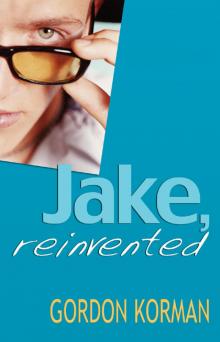 Jake, Reinvented
Jake, Reinvented No More Dead Dogs
No More Dead Dogs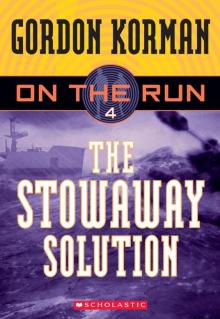 The Stowaway Solution
The Stowaway Solution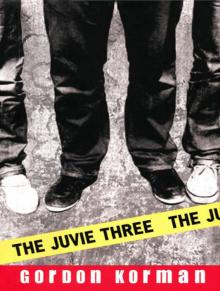 The Juvie Three
The Juvie Three The Climb
The Climb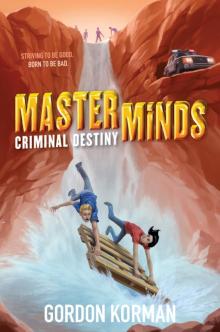 Criminal Destiny
Criminal Destiny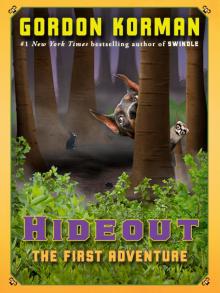 Hideout: The First Adventure
Hideout: The First Adventure Flashpoint
Flashpoint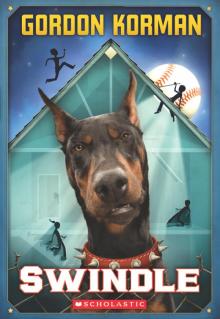 Swindle
Swindle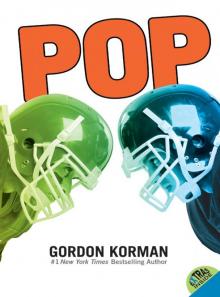 Pop
Pop The Rescue
The Rescue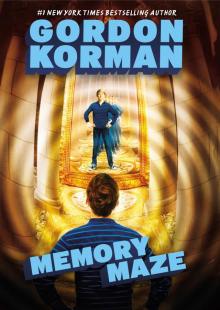 Memory Maze
Memory Maze The Sixth Grade Nickname Game
The Sixth Grade Nickname Game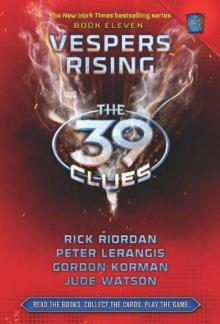 Vespers Rising
Vespers Rising Collision Course
Collision Course The Abduction
The Abduction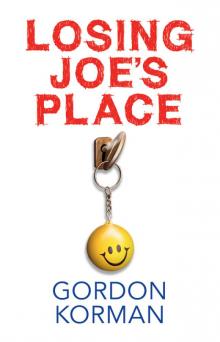 Losing Joe's Place
Losing Joe's Place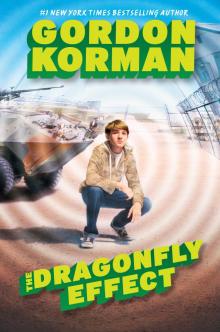 The Dragonfly Effect
The Dragonfly Effect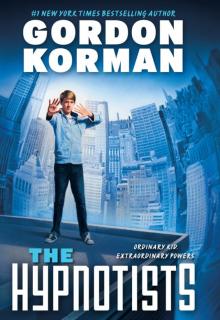 The Hypnotists
The Hypnotists Survival
Survival Lights, Camera, DISASTER!
Lights, Camera, DISASTER! Payback
Payback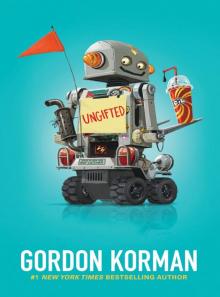 Ungifted
Ungifted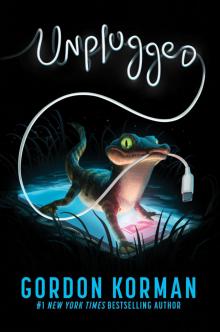 Unplugged
Unplugged Framed
Framed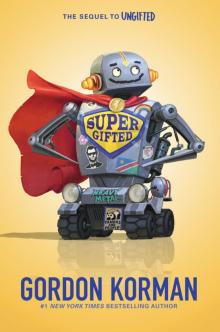 Supergifted
Supergifted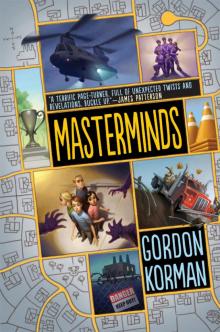 Masterminds
Masterminds Jackpot
Jackpot Don't Care High
Don't Care High The Deep
The Deep Go Jump in the Pool!
Go Jump in the Pool! The Contest
The Contest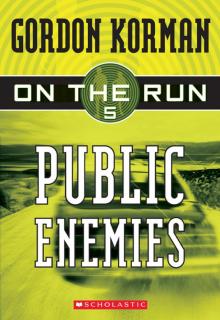 Public Enemies
Public Enemies Hideout: The Second Adventure
Hideout: The Second Adventure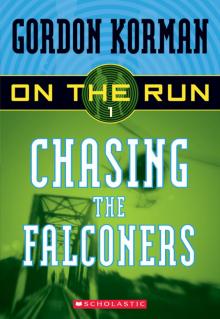 Chasing the Falconers
Chasing the Falconers One False Note
One False Note Shipwreck
Shipwreck Jingle
Jingle Unleashed
Unleashed Son of the Mob
Son of the Mob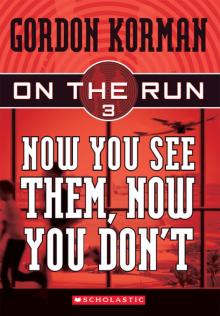 Now You See Them, Now You Don't
Now You See Them, Now You Don't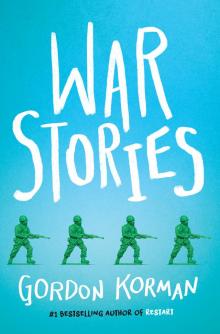 War Stories
War Stories Schooled
Schooled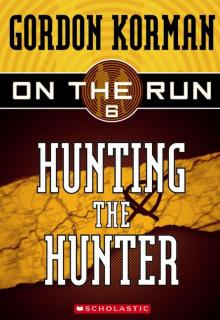 Hunting the Hunter
Hunting the Hunter The Zucchini Warriors
The Zucchini Warriors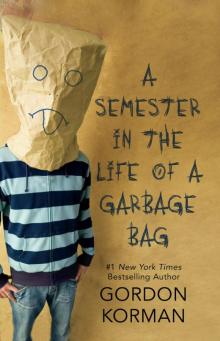 A Semester in the Life of a Garbage Bag
A Semester in the Life of a Garbage Bag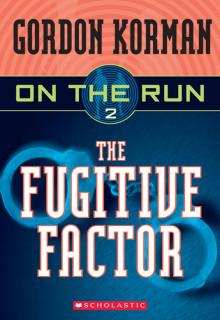 The Fugitive Factor
The Fugitive Factor Born to Rock
Born to Rock The Summit
The Summit Showoff
Showoff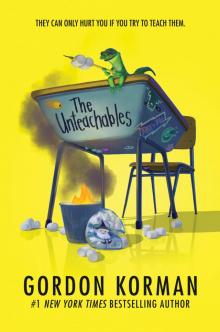 The Unteachables
The Unteachables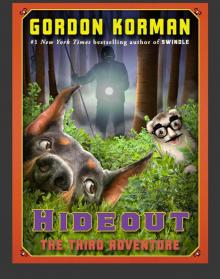 The Third Adventure
The Third Adventure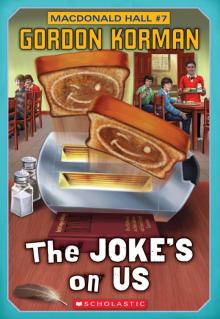 The Joke's on Us
The Joke's on Us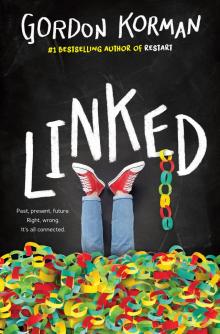 Linked
Linked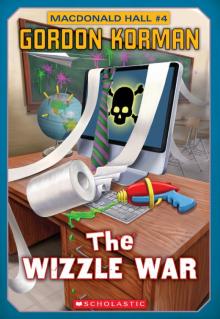 The Wizzle War
The Wizzle War The 6th Grade Nickname Game
The 6th Grade Nickname Game The Second Adventure
The Second Adventure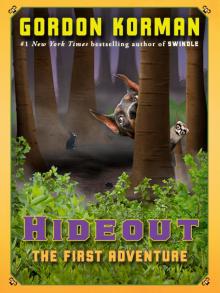 The First Adventure
The First Adventure![39 Clues : Cahills vs. Vespers [01] The Medusa Plot Read online](http://i1.bookreadfree.com/i2/04/10/39_clues_cahills_vs_vespers_01_the_medusa_plot_preview.jpg) 39 Clues : Cahills vs. Vespers [01] The Medusa Plot
39 Clues : Cahills vs. Vespers [01] The Medusa Plot